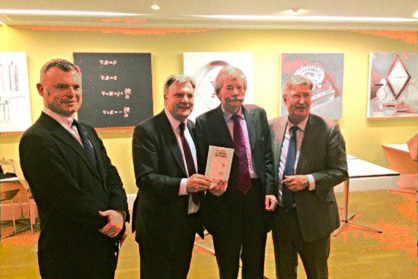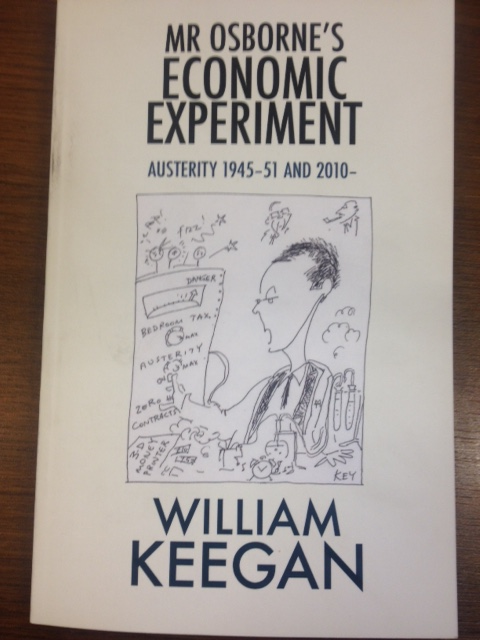The Independent's journalism is supported by our readers. When you purchase through links on our site, we may earn commission.
Mr Osborne’s Economic Experiment: William Keegan’s new book
A powerful statement of the Keynesian argument against Conservative plans for deep public spending cuts


William Keegan’s new book on the coalition government’s economic policy was launched at the Strand Group at King’s College, London, last night. Ed Balls, the shadow chancellor, was there, and Keegan was introduced by Jon Davis, director of the Strand Group (above left), and Prof Jeremy Jennings (above right).
Balls was one of the first to put his hand up to ask a question of Keegan, a visiting professor at King’s. The shadow chancellor noted that the Government had given up on deficit reduction in 2012 and asked if George Osborne had been secretly reading Keegan’s columns.
Which was interesting, because the thrust of Labour’s election attack is not that the Conservatives have given up on cutting public spending.
It is true, though. Daisy Srblin, who works on tax policy at the Fabian Society, asked Keegan if he thought that it was in the interests of both the Conservatives and Labour to exaggerate the severity of “austerity”.
Keegan lapsed into the autobiographical,* saying that he had lived through austerity after the war, and that it was not the same as what we had experienced in recent years. Despite that, the subtitle of his book is “Austerity 1945-51 and 2010-”.
Keegan’s pointing up of the difference between the two periods is also rather at odds with his blood-curdling rhetoric about the grinding of the faces of the poor, especially when the evidence on the overall distribution of income is that it is slightly more equal now than in 2010.

I disagree with the great Keegan, too, in attributing Osborne’s desire to cut public spending to his ideological (implication: unreasonable) commitment to a small state. I think this is wrong. There is nothing unreasonable about thinking that governments ought to balance the books.
Actually, it is worse than wrong: it weakens Keegan’s argument, which is the Keynesian one for maintaining the level of demand in the economy.
Indeed, the event had elements of a Keynesian revivalist rally. One questioner described some of those present as paleo-Keynesians. This was possibly a reference to Sir Peter Tapsell, the Conservative MP who disagreed with Margaret Thatcher on economic policy. Sir Peter asked a question, or made a statement, saying that he didn’t agree with Keegan that the Conservatives blamed the Labour government for the 2008 crash. Which is odd, because Sir Peter is usually in the House of Commons for Prime Minister’s Questions, when David Cameron often refers to “the people who crashed the car”.
As a balanced-budget Democrat (how Bill Clinton described himself) I think fiscal responsibility is important, but the case for fiscal expansionism at a time of zero real interest rates is strong, as Osborne implicitly acknowledges and Balls subversively pointed out.
Much better to make this argument and win it, rather than accusing the Tories of wanting to shrink the state for hidden reasons.
There was a high-calibre turnout for last night’s occasion. Not just the shadow chancellor and the Father of the House (Sir Peter is the member of the Commons with the longest unbroken service), but Sir Nicholas Macpherson, permanent secretary to the Treasury (who spoke at last week’s inaugural meeting of the Strand Group), Robert Chote, chairman of the Office for Budget Responsibility, Andrew Adonis, another visiting professor at King’s, and strong representation from the Independent titles, including Andreas Whittam Smith, their founder, Steve Richards and Hamish McRae.
I look forward to reading Keegan’s book. I wrote about his last book, Saving the World? Gordon Brown Reconsidered, when it was launched at the Mile End Group, the predecessor of the Strand Group, and since.
There is a Storify of the event here.
*Good news for admirers of Keegan: he confirmed that he is working on his memoir now.
Join our commenting forum
Join thought-provoking conversations, follow other Independent readers and see their replies
Comments